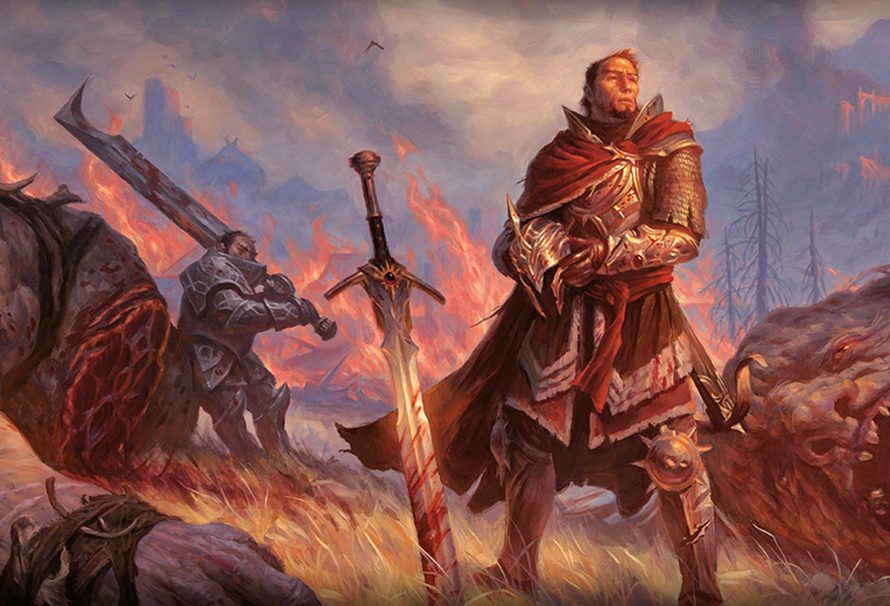As a dungeon master I’m constantly on the lookout for those who look like they may be suited for The Path. I’ve introduced dozens of people to tabletop games and I would say only 1 or 2 have shown all these signs, but that doesn’t mean that anyone can’t be a DM either. It’s no mystical art that you’re born with – you can indeed learn this power. And, if you find yourself nodding to any of these 7 signs, maybe just grab a starter adventure, some friends and give it a go. Here’s 7 signs you’re ready to be a DM.
You organise the sessions

A DM trying to arrange a session.
It’s not always the dungeon master’s job to do all the organisation, but since they’re regularly the most enthusiastic member of the group, they tend to want to get the sessions organised, planned and ready so they know when it’s coming up. They also want to know how long they have to prepare for the session. Therefore if you’re the one grabbing all your friends, bringing them around to your house, getting the snacks and making them stick to a regular weekly slot, you’d probably do a better job than whoever your current DM is.
You’ve learnt the rules and bought the books
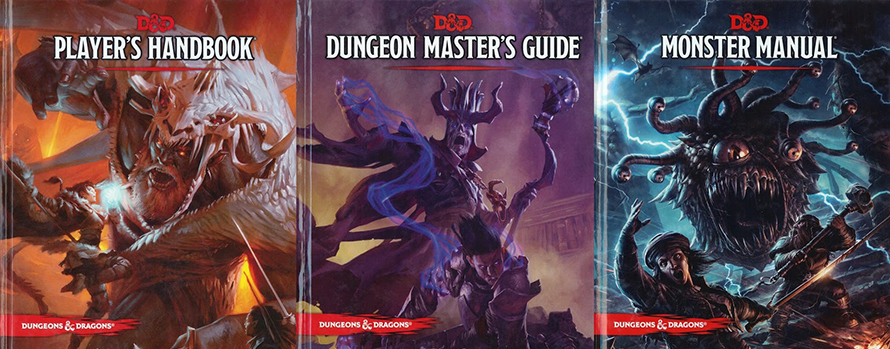
“Why do you even have a DM guide, Greg?”
Similar to the previous point, your enthusiasm for the game has made you buy the books, absorb them into your brain until you know not just the rules for your character, but the core rules, and the rules for your fellow players’ characters. You want to learn more about the lore of the world, you want to find out about your class or race, or you want to remember all the mechanics available to you. If one of my players comes to a session and wants to use the ‘Dodge’ ability on their turn, or wants to ‘Grapple’ and knows how it works, I’m so very happily surprised. If you really want to engage with the lore and mechanics of the game, it’ll make you a great DM.
You want to play more characters
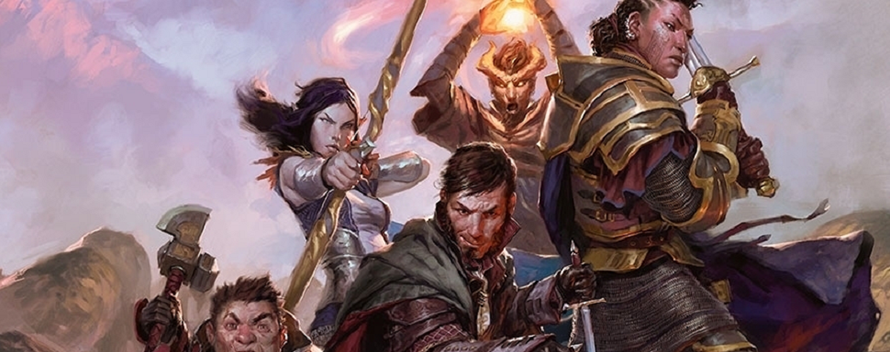
You want to play ALL these guys.
Have you ever thought “you know it’s fun playing my human cleric, but sometimes I wish I could have a gnome wizard too.” Maybe your ranger has an animal companion and you keep a track of them as a character along with their motivations and goals and catnip rations. This is a good sign for DM-hood. We play numerous characters – some for months and others for minutes, but every one should have a name, a voice, a visual description, a goal and personality. As someone who likes to do voice impressions I love getting to play someone new every session, even if they don’t get to be the hero. I always like the villains anyway.
You think about the game a lot

“They’ll never expect TWO traps.”
Brushing your teeth? You’re thinking about your next session. On the train to work? Wondering how to further your character’s goal. In a boring meeting that won’t end? You’re perfecting the nuances of your character’s speech patterns. You think about DnD a lot, it gets you excited and you want to do it all the time. It sucks having to wait so long to play. This is what it was like for me, to the point where I was running 3 games at once to get my fill. I was spending weekends in cafes planning campaigns and reading adventure books. I pestered players about their characters endlessly to get them integrated into the story. As a DM, you take control of your hobby rather than waiting for someone else to let you play it. If you’re the one obsessing about RPGs, that’s what’s needed to fuel a successful roleplaying group.
“This would be cool in DnD.”
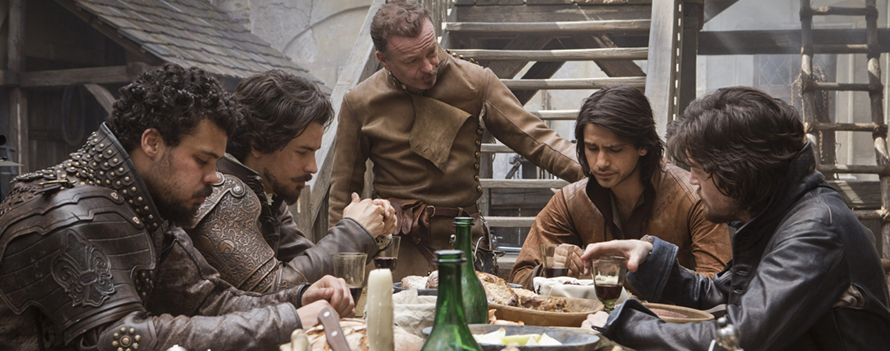
They’re already in a tavern for god’s sake.
Okay so you may not be thinking about DnD all the time, but perhaps you do so when you’re reading a book, watching Game of Thrones, or playing a game. You think “this would be cool in DnD”. I used to do this all the time, I couldn’t watch a tv show without spotting plot hooks, cool NPCs or encounters. Especially adventure shows like BBC’s Robin Hood or Three Musketeers, where there’s a new adventure for the main characters every episode, with an overarching plot each season. It’s basically how a DnD campaign is run. I’ve even made adventures that were pretty much lifted from that show, copying the characters into NPCs and just changing the names (I may not have even changed the names) and changed the french soldiers into gnolls. BOOM instant adventure.
You don’t want to take control
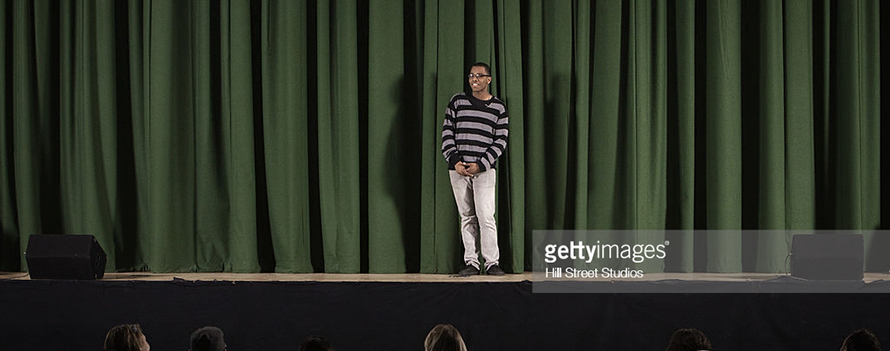
Pictured: Not a DM.
A lot of the above points are about thinking of story and characters and ways to influence your game, and this is an integral part of being a dungeon master. However, campaigns tend to be 40-70% coming from you, and the rest is coming from the players. This can vary a lot depending on the DM, or the type of game you’re playing, but relinquishing control is such an important turning point for a DM. I think every DM should do 1 session with absolutely no prep, and just ask questions to the players. You’d be surprised at how much you can rely on them to add and create the story, and that’s actually how it should be. The DM isn’t on a stage presenting to an audience in the stalls, you’re all on the stage together. If the idea of enabling your group to come up with an awesome story together appeals to you, then you’re already a long way to being a great DM.
You listen more than you speak

A man mistaking himself for a good listener.
If you ever see a good chat show host, or panel moderator, they’ll ask a question or say something that’ll kick-start a conversation amongst the others. They’ll gently keep people on topic, introduce counterpoints and involve people who are being quiet, and then draw it to a close and move onto the next question. This is pretty much what DMs are doing. If you think you can do that, then pick up that DM screen. Don’t think of being a DM as a one-man show with all eyes on you, where you have to constantly deliver material. If I need 5 minutes to check my notes I just ask the players an open question and let them roleplay a little scene amongst themselves. It’s not my job to tell them exactly what’s happening, I just tell them how the world reacts to them. The most fun I’ve had is when the players do the completely unexpected (murdering the quest giver is NOT completely unexpected).
So if you’re showing any of these signs, maybe speak to your DM about potentially having a go. And if you show none of these signs, but feel like it might be something for you, try to think more about DnD, extract plot hooks from Tyrion Lannister, and imagine the amusing NPC Bronn would make during a session, especially if you’re not even playing a tabletop RPG right now. The easiest way is to grab the DnD starter adventure (it costs about £15, or 1.5 coffees in London), a bunch of your friends and have a blast.

